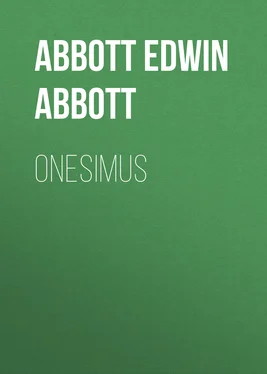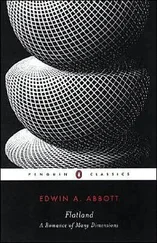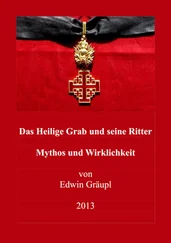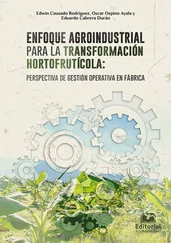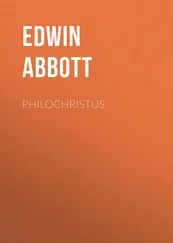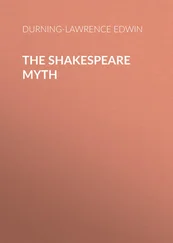Edwin Abbott - Onesimus
Здесь есть возможность читать онлайн «Edwin Abbott - Onesimus» — ознакомительный отрывок электронной книги совершенно бесплатно, а после прочтения отрывка купить полную версию. В некоторых случаях можно слушать аудио, скачать через торрент в формате fb2 и присутствует краткое содержание. Жанр: foreign_sf, на английском языке. Описание произведения, (предисловие) а так же отзывы посетителей доступны на портале библиотеки ЛибКат.
- Название:Onesimus
- Автор:
- Жанр:
- Год:неизвестен
- ISBN:нет данных
- Рейтинг книги:4 / 5. Голосов: 1
-
Избранное:Добавить в избранное
- Отзывы:
-
Ваша оценка:
- 80
- 1
- 2
- 3
- 4
- 5
Onesimus: краткое содержание, описание и аннотация
Предлагаем к чтению аннотацию, описание, краткое содержание или предисловие (зависит от того, что написал сам автор книги «Onesimus»). Если вы не нашли необходимую информацию о книге — напишите в комментариях, мы постараемся отыскать её.
Onesimus — читать онлайн ознакомительный отрывок
Ниже представлен текст книги, разбитый по страницам. Система сохранения места последней прочитанной страницы, позволяет с удобством читать онлайн бесплатно книгу «Onesimus», без необходимости каждый раз заново искать на чём Вы остановились. Поставьте закладку, и сможете в любой момент перейти на страницу, на которой закончили чтение.
Интервал:
Закладка:
But herein is thy hand manifest, O Lord Jesus; for through the loss of earthly love and trust thou wast leading me to thyself, the fountain of all goodness, O thou whom to love is to trust, and to trust is to love, and in the loving and trusting of whom is Life Eternal. Blessed art thou, who dost free the oppressed and guide the wanderer! Blessed art thou, Lord of all Love, who didst take from me unto thyself the earthly love of my dear brother that thereby thou mightest guide me to a better and higher Love, even to thyself, in whom, long afterwards, I found my brother once again.
THE SECOND BOOK
§ 1. HOW I RETURNED TO THE WORSHIP OF FALSE GODS
Perceiving that my mind was under some trouble or disturbance, my master often turned the discourse to matters of morals and philosophy, and especially to the belief in the gods and the divine government of the world; and I told him plainly that I had no such belief, for that the world seemed to me governed by chance, or by fate, or by evil gods, but in no case by good gods, seeing that ill-doing prevailed in the world. Upon this Philemon, being grieved because of my unbelief, asked me whether I had had much discourse with his friend Artemidorus, the Epicurean, on these matters. When I said no, not much, but that my unbelief arose from my own experience of things, because I had seemed to discern more proof of the power of evil than of good, he bade me take comfort; for he would in due course emancipate me, and meantime I should be to him as a friend. After this he advised me to study the books of Plato and of Chrysippus, if perchance I might thus frame myself to a better mind. But when I urged (which indeed was not my own argument but I had heard it lately from Artemidorus) that the stories concerning the gods were full of all manner of myths, and fables containing portents, and metamorphoses, such as no sane man could believe, to this he replied that the whole world was full of no less wonders, if a man rightly considered it; for that summer should follow spring, and autumn summer, that storm should follow calm, and calm storm, and that the whole world should be so orderly and evenly governed as it was, this, he said, was a far greater wonder than the metamorphoses of which the poets speak. In particular he pointed out the wonderful things past all common course of nature, which were to be seen in that very neighborhood of Colossæ and Laodicea; and taking me with him up and down the valley of the river, called Lycus, which flows through that region, he shewed me how the water is there changed into stone of a dazzling brightness, so that the hills are in many parts covered with the appearance of snow, and cataracts abound of the same substance, and how other mountains vomit forth smoke and fire, and others have wells and springs bubbling upward hot from the earth. Again on another day he brought me to a certain pool sacred to the goddess Cybele, and bade me mark how sheep and goats and cattle, driven into this pool, straightway fell down and perished, but the priests of Cybele, entering into the same waters, stood upright and unhurt in the presence of many spectators; and upon this he asked me what more proof was wanting of the power of the goddess to protect her votaries? When I could make no reply, he affirmed that all these wonders were placed at hand to convince them that disbelieved in the gods; for if we were forced to believe in these wonders, being as they were before our eyes, why should we be so loth to believe other wonders that our eyes had not seen?
In course of time the words of Philemon and still more his kind deeds and the kindness of his wife Apphia, had power to quench that rancorous spirit which had inflamed my heart. Other friends also, both at Colossæ and in Hierapolis, moved me in the same direction, I mean towards a belief in the gods. Among these was the good Epictetus (a slave like myself and at that time a very young man) concerning whom I shall have much to say hereafter; and a certain Nicostratus of Laodicea, full of zeal for learning, but devout and liberal, and of a gracious nature. Nor must I forget Heracleas, a great reader of the works of the ancient poets as well as of the philosophers, who had studied for some time in Alexandria. These three, being of the acquaintance of Philemon, treated me with exceeding courtesy, seeking my society and willingly conversing with me; and I soon perceived that almost all the rest of our acquaintance though in no respect given to superstitions, nevertheless agreed in believing that the world was governed by good and divine powers.
§ 2. HOW SOME OF PHILEMON’S FRIENDS AVOWED A BELIEF IN ONE GOD
I soon found that, although the philosophers whom I have mentioned above, believed in gods, yet their belief differed much from that of the common people; for the latter believe in many gods, but the former inclined to acknowledge one god under many names. It was at a symposium, during a public festival in honor of Artemis, that I first heard this opinion broached by Nicostratus who said that “there was in reality but one Power, however He may manifest Himself to mortals by many different shapes and names in several lands and nations, speaking also through different prophets, a Delphic woman in Pytho, a Thesprotian man in Dodona, a Libyan in the Temple of Ammon, an Ionian in Claros, a Lycian in Xanthias, and a Bœotian in Ismenus.” I looked that he should have been reproved and put to silence by my master; but Philemon said nothing except that this doctrine was not fit to be taught in that shape to the common people; and the rest seemed to assent to Nicostratus. Heracleas, in particular, said that “though the number of gods and demons, or demoniacal essences, be far more than the 30,000 whereof Hesiod makes mention, yet the mighty King of all this multitude, seated on his stable throne as if He were Law, imparts unto the obedient that health and safety which He contains in Himself.” To me also, in our private and familiar discourse, the young Epictetus would always speak, not of many, but of One, who guides all things and to whose will we must conform ourselves. As for idols and statues of the gods—of which I had always been wont at Lystra to speak as being themselves gods, so that I could scarce think of the gods apart from them—Nicostratus said openly at this same feast, that it was no marvel if the immortal powers preferred to inhabit beautiful shapes of gold and stone and ivory; which nevertheless were of course to be distinguished from the gods themselves, as being but the integuments of the divine senses; but Heracleas went yet further (and Epictetus with him) saying that one should no more accost an image than a house (instead of the householder); and that images were not needful but only helpful for the forgetful souls of men.
When Heracleas avowed his belief in the myths and metamorphoses and fables about the gods I said to him, “Why, O Heracleas, are there no metamorphoses in our days?” “Because,” replied he, “men have degenerated from their progenitors of ancient date. Therefore it is no marvel that the gods refuse to perform such wonders as of old for mankind upon earth. But in the former days the pious were naturally changed from men into gods, and these are even now honored, such as Aristaeus, Heracles, Amphiaraus, Asclepius, and the like. Having regard to these facts, any one may reasonably be persuaded that Lycaon was changed into a wolf, Procne into a swallow, and Niobe into a stone. At present, however, now that vice has spread itself through every part of the earth, the divine nature is no longer produced out of the human, or, in other words, men are no longer made gods but only dignified with the title thereof through excess of flattery, as some among us call the emperors gods even while they yet live.” To this Nicostratus assented, but added that “the lies of the multitude are sometimes to blame, pouring contempt upon undoubted facts in the attempt to adorn and exaggerate them, as for example, asserting not only that Niobe was changed into a stone, which is true, but also that Niobe on Sipylus still weeps, which is not true.” More passed between them; but this I discerned clearly that both they and many others, while acknowledging one god under many names, agreed with Philemon (and not with Artemidorus the Epicurean) in believing without doubt the myths and fables about the gods.
Читать дальшеИнтервал:
Закладка:
Похожие книги на «Onesimus»
Представляем Вашему вниманию похожие книги на «Onesimus» списком для выбора. Мы отобрали схожую по названию и смыслу литературу в надежде предоставить читателям больше вариантов отыскать новые, интересные, ещё непрочитанные произведения.
Обсуждение, отзывы о книге «Onesimus» и просто собственные мнения читателей. Оставьте ваши комментарии, напишите, что Вы думаете о произведении, его смысле или главных героях. Укажите что конкретно понравилось, а что нет, и почему Вы так считаете.
